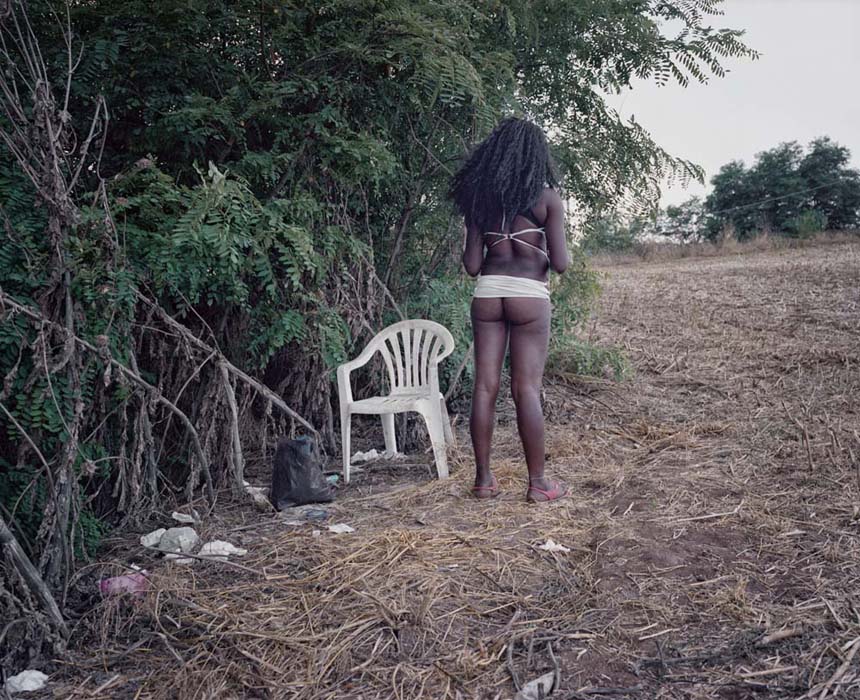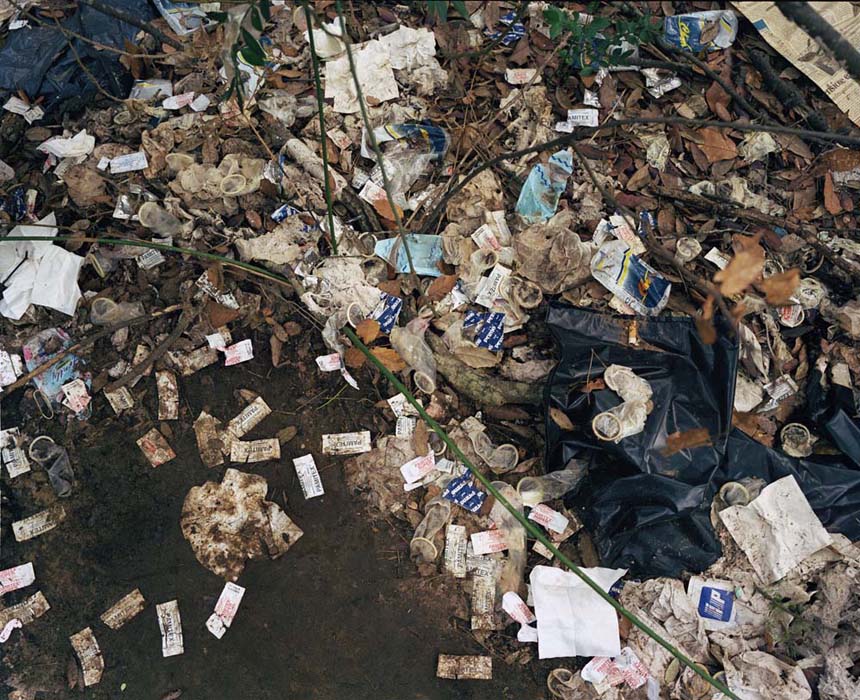Paolo Patrizi
Italy
Migrant Sex Workers
The eerie makeshift atmosphere of the sex camps represents a clear sense that the economic and social crises are degrading the condition of everyday life for a vast range of people in many parts of the world and that the global elites' answers to these crises cannot provide any solutions, regulations or reprieve in the near future. When Nigerians began migrating to Italy in the mid-1980s, they were one of the first communities from developing countries that were attracted by Italy's demand for low-skilled labour. Constrained by stringent border controls, many were pushed to take illegal routes to the country and adopt professions that are less than safe.
The underground economy attracted immigrant workers providing them jobs without regulations. In a market strongly segmented by gender, age, educational qualifications and population shortages with immigrants, problems are worsened by a political system and public opinion where xenophobia is widespread. As men remained at work in the fields of the southern regions of Italy where organised crime thrives, and the line between legitimate and illegal enterprises is often blurred, the first Nigerian women began to independently work as prostitutes.
For over 20 years, the women of Benin City, have traveled to Italy to work in the sex trade. Every year, successful ones recruit younger girls to follow in their steps. Most migrant women, including those who end up in the sex industry, have made a clear decision to leave home and take their chances overseas. They are headstrong and ambitious women who migrate in order to escape conflict, persecution, environmental degradation, natural disasters, and other situations that affect their habitat and livelihood. They have chosen a variety of ways to exploit their personal assets. These range from being erotic dancers, to real contact work of varying levels of intimacy.
![Chobi Mela [0]](http://images.squarespace-cdn.com/content/v1/5423f995e4b01248b3c04a4a/1609919215643-TU5RUL5BFRF3OXFJZEZL/Chobimela_logo.png?format=1500w)





